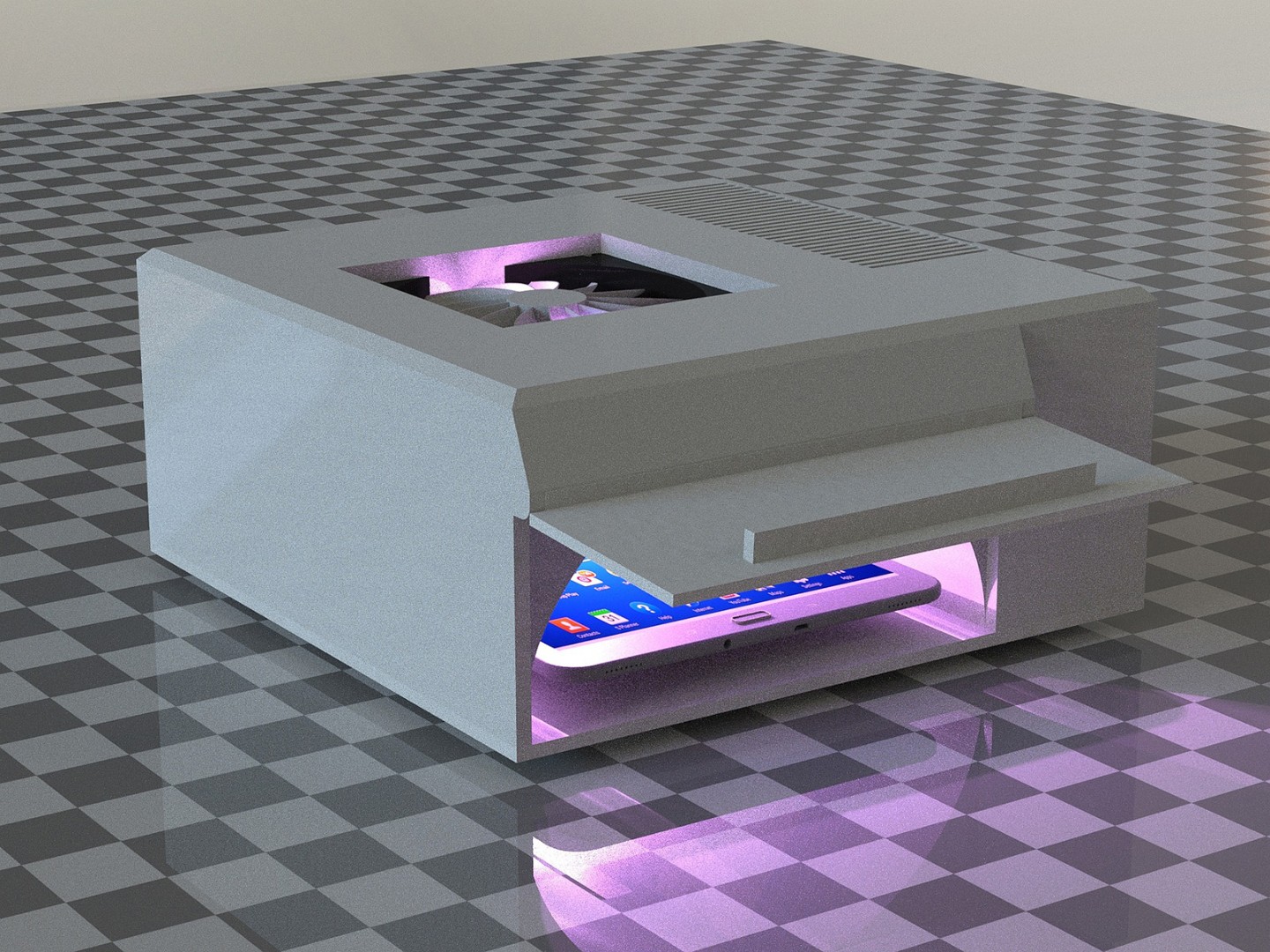Worldwide technology builders are accelerating UVC LED developments for disinfecting applications aiming to prevent the spread of coronavirus. Lately we have seen many new products and technologies debuted and here comes a new UVC LED innovation from the German research center, Fraunhofer Institute for Optronics, System Technology and Image Evaluation, which is part of the Applied System Technology AST branch (IOSB-AST).
Researchers built a microwave-like equipment which include two separate UVC LED modules with 10 UVC LEDs embedded respectively. Each UVC LED has a power of 100 mW, making the total UVC radiation 2W and achieving a radiation dose of 800 J / m² in just a few seconds. The amount of radiation dose can effectively inactivate bacteria and viruses.

(Image: Thomas Westerhoff/Fraunhofer IOSB-AST)
According to Fraunhofer IOSB-AST, the device is designed to disinfect smartphones, tablets and similar mobile companions as they are touched countless times a day and are often put in different places. It is thus essential to thoroughly disinfection these devices to prevent the transmission of pathogens.
The solution not only simply disinfects smartphones with light, but also identifies them using an NFC reader, and the dose applied is recorded and recorded by a sensor. Each disinfection process can thus be validated and clearly assigned to the respective device. An LCD display informs the user about the most important functions. Downstream IT systems can also be integrated via W-LAN and web interface.
Fraunhofer IOSB-AST engineer Thomas Westerhoff said, “For many years we have been working on very different applications for UVC technologies in the field of disinfection as part of the BMBF program ‘Advanced UV for Life.’ LEDs offer great advantages, which we can demonstrate using the example of smartphone disinfection.”
Prototype of the product is expected to be presented in September 2020 at the IFAT, the world's leading trade fair for water, sewage, waste and raw materials management in Munich, Germany. And The Fraunhofer IOSB-AST is still looking for commercial partners for commercial use.












